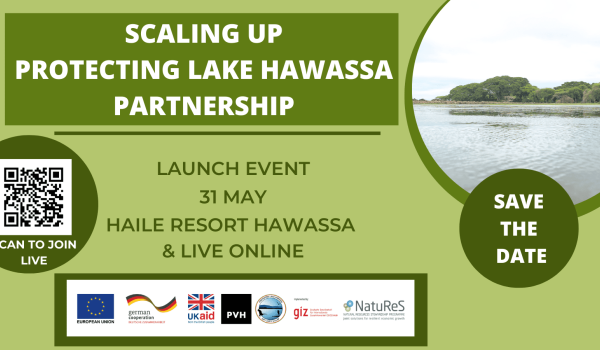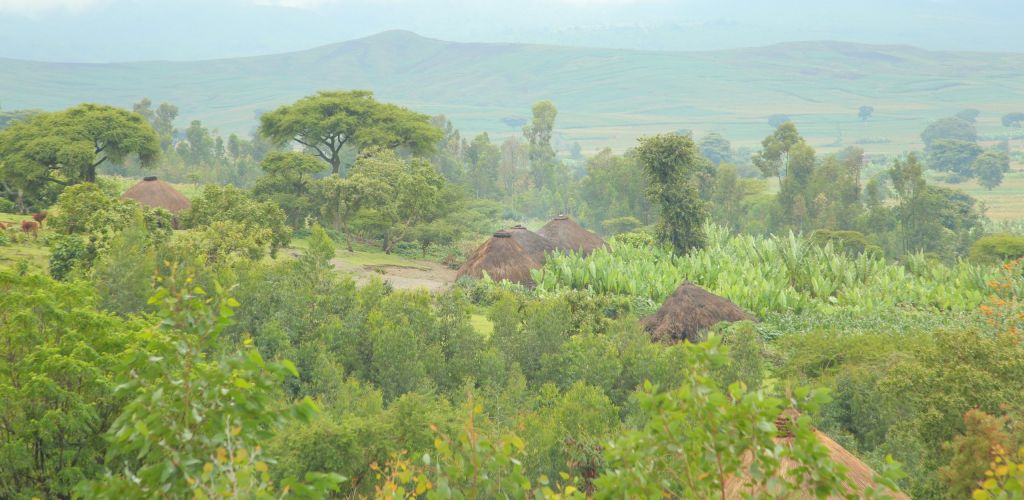
Ethiopia – An Economic Growth Leader Threatening its Natural Resources
Increasing Risk for Ethiopia’s Natural Resources
Ethiopia is experiencing tremendous economic development: Average annual growth rates between 2008 and 2018 reached 9.8 percent according to World Bank figures. At the same time, Ethiopia is facing rapid population growth, with a doubling taking place roughly every 30 years. Current estimates assume a population of around 115 million people. This poses a huge challenge for the country: not only need basic services and infrastructure be extended, but also job opportunities must be provided for the increasing population.
While Ethiopia disposes of plentiful water and other natural resources, the variability of supply over space and time poses a severe risk to its economy and society. Furthermore, institutions on Integrated Water Resources Management (IWRM) are still in their infancy. Lack of knowledge and underfunding leave them unprepared to meet the escalating challenges they are faced with. The private sector, communities and the government agencies mandated to ensure the sustainable management of natural resources are in urgent need to collaborate.
NatuReS goal is to actively engage both national and international companies in Natural Resources Stewardship in Ethiopia, as well as supporting public institutions in policy development and implementation aimed at enhancing natural resources stewardship at national and regional levels.
Partnerships in Ethiopia
Protecting Lake Hawassa Partnership
Location: Lake Hawassa sub-catchment, Sidama and Oromia Region
Aim: Protecting Lake Hawassa, which is threatened by population growth, urban and industrial park development, land degradation and improper waste management.
Activities:
1.) Afforestation and Soil Erosion Control (ASEC)
- Establishment of tree nurseries and distribution of seedlings for the (re-) afforestation of degraded land
- Soil and water conservation through an ecohydrological approach
- Livelihood diversification (poultry and beekeeping)
2.) Solid and Liquid Waste Management (SLWM)
- Rehabilitation of Amora Gedel Constructed Wetland
- Provision of waste collection equipment (e.g. baling machine, trash bins)
- SLWM / recycling training for waste collectors
3.) Community and stakeholder engagement (CASE)
- Public awareness raising and behavioural change events in schools
- Production and broadcasting of radio shows on environmental protection
4.) Alliance for Water Stewardship Standard (AWS)
- Assessment of Hawassa Industrial Park (HIP) for AWS gaps identification
- Development of an implementation plan for AWS within the HIP
NatuReS working areas: Circular Economies, Catchments, Economic Zones
Partners:
Public Sector: Ethiopian Environmental Protection Authority (EPA), Hawassa University (HU), Rift Valley Lakes Basin Development Office (RVLBDO), Hawassa City Administration, Sidama Environment Protection and Forest Bureau (SEPFB), Industrial Parks Development Corporation (IPDC).
Civil Society: CIFA Onlus, Affiliation of Friends of Lake Hawassa (AFLaH), Stockholm International Water Institute (SIWI), Southern Ethiopia People Development Association (SEPDA), Water Witness International (WWI)
Private Sector: PVH, Haile Resort, Coba Impact, Hotel Assoc., Waste Collection Assoc., Fruit Hawassa
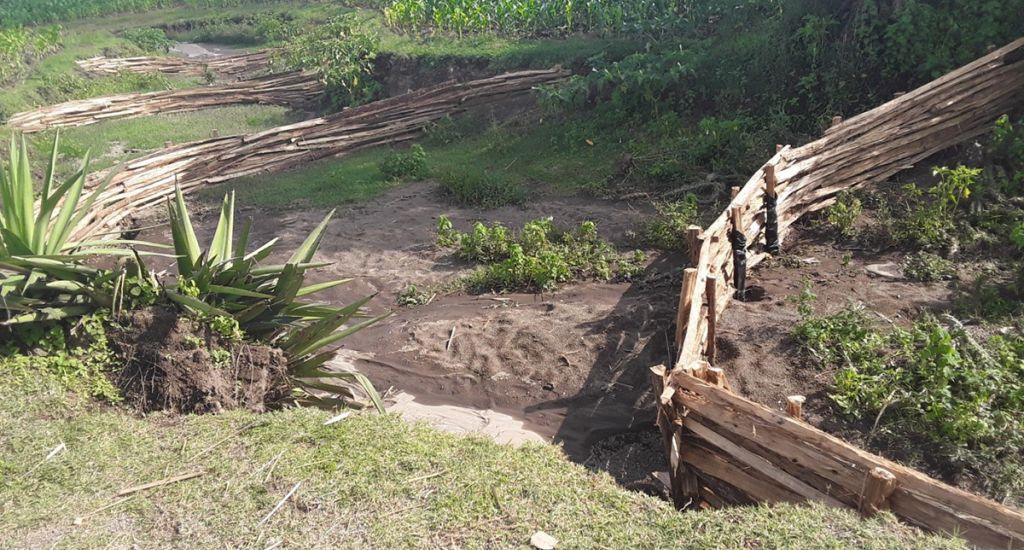
Soil erosion control activities in the Lake Hawassa Catchment. Copyright: GIZ
Partnership for Circular Value Chains in Addis Ababa
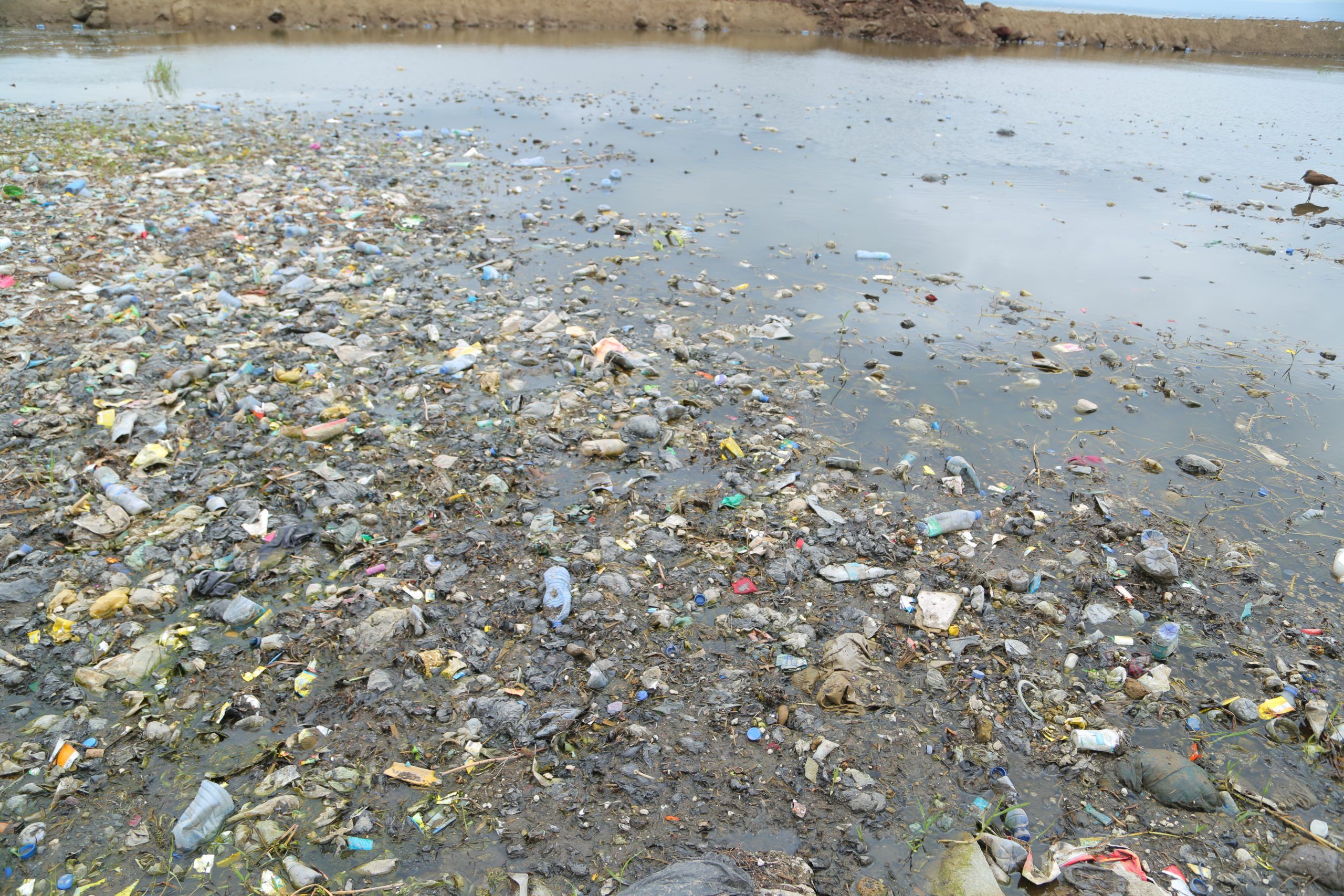
Littered plastic polluting water bodies in Addis Ababa. Copyright: GIZ
Location: Addis Ababa
Aim: Protect water and other natural resources in Addis Ababa by promoting circular value chains and enhancing recycling.
Activities:
1.) Reduce pollution of natural resources through improved waste management
- Provide training on natural resources management and integrated solid waste management for waste collectors and management committees.
- Provide equipment to improve collection and transportation of waste (Personal Protective Equipment (PPE), baling machines, collection carts, waste segregation bins)
- Introducing new technologies for the management and recycling of plastic – manual baling machines, pelletizing of used coffee grind as cooking fuel
- Facilitating market linkages between waste generators, collectors and recycling companies
2.) Behavior change
- Community awareness raising on proper waste disposal through communication materials
- Piloting at-source (household/business level) waste segregation.
3.) Public sector support
- Capacity building of public partners on the stewardship approach.
- Support Environmental Protection Authority (EPA) on an extended producer responsibility (EPR) policy.
NatuReS working areas: Cities, Circular Economies
Partners
Public Sector: Ethiopian Environmental Protection Authority (EPA), Addis Ababa Cleansing Management Agency
Civil Society:Centro Internazionale per la Famiglia (CIFA), Onlus, PETCO, Irish Aid, Selam children’s village
Private Sector: Coba Impact manufacturing PLC, EKT trade and investment PLC, NN recycling, ANEGA Energies, Solid waste collector’s associations
Video: Women economic empowerment along the plastic value chain in Addis Ababa. Copyright: GIZ
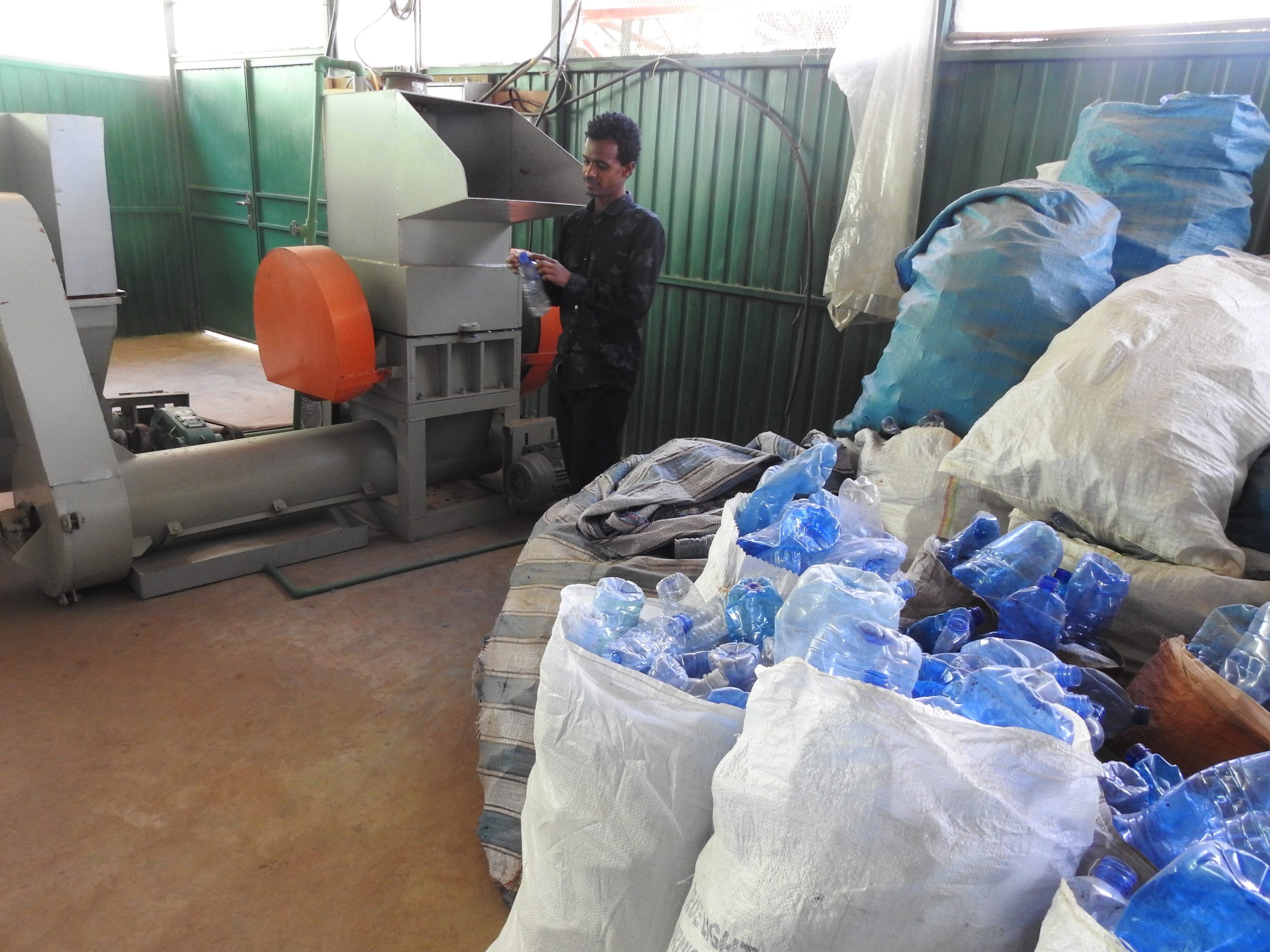
Creating market linkages between plastic collectors & converters. Copyright: GIZ
ALL TOPICS
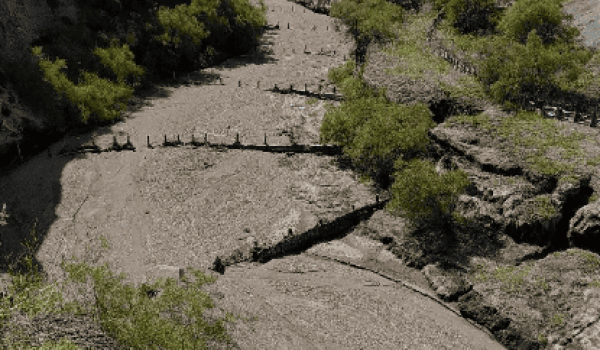
Reviving Lake Hawassa’s Ecosystem: The Partnership’s Efforts to Combat Land Degradation
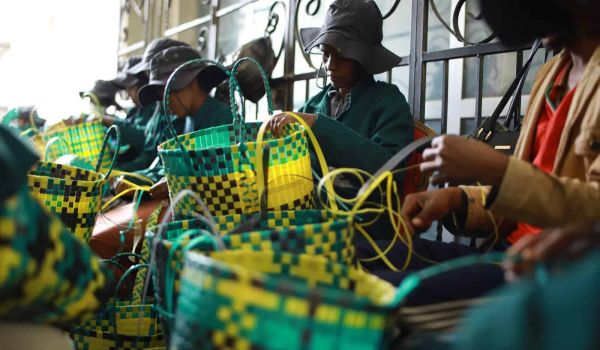
Waste to value: upcycling plastics for women economic empowerment in Addis Ababa
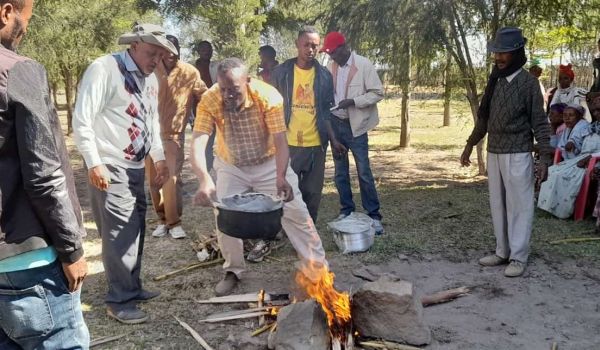
Apiculture for more resilient communities around Ethiopian Lake Hawassa
